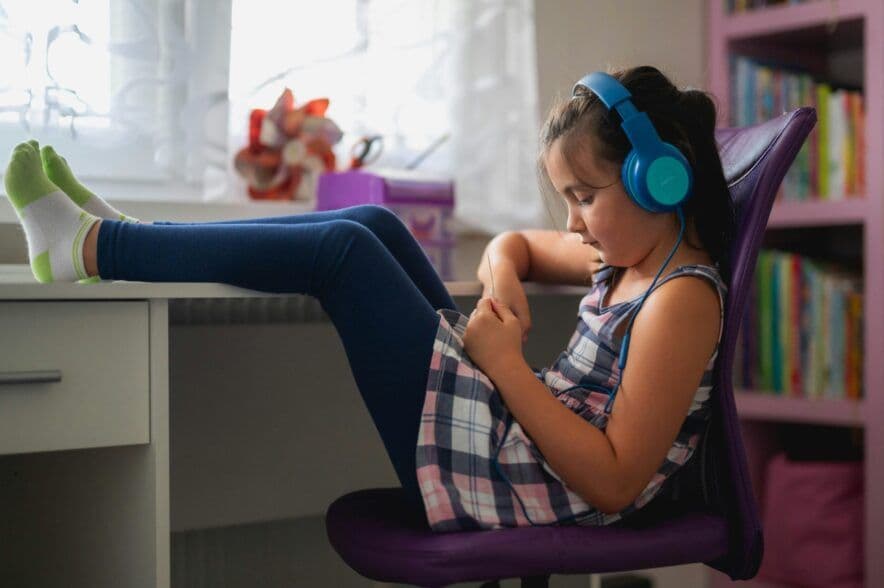Research
Researchers link family screen time use and children’s language skills

FDC-Friendly
Freya Lucas
Oct 16, 2024
Save
Children who live in families who access screens more often are more likely to struggle with their language skills, a new study suggests.
To reach their findings the Estonian researchers surveyed the parents of more than 400 children about their screen use, their children's screen use, and their children's language skills.They found that parents who use screens a lot also have children who use screens a lot, and that children's higher screen time is associated with poorer language skills.
Unsurprisingly, researcher Dr. Tiia Tulviste said, children’s screen use patterns are similar to those of their parents.
"Child language researchers emphasize the importance of everyday interactions with adults in early language development, where children are actively involved,” she continued.
“At the same time, we know that all family members tend to use their screen devices. Because time is finite, we need to find out how this fierce competition between face-to-face interaction and screen time affects child language development."
Typically much of children’s language development occurs because they talk to adults: having conversations exposes them to more vocabulary and grammatical structures. The presence of screens can disrupt this, especially if an adult is being interrupted by texts or notifications.
Despite this understanding, researchers wanted to know more about the different types of screens children may be using and what they're using them for, as well as the screens that adults around them use.
The children in the survey were between two years, six months of age and four years of age. Parents were asked to estimate how long each member of the family would spend using different screen devices for different purposes on a typical weekend day.
It also asked how much of this time would be spent using a screen as a family, for example, watching a film together. Finally, parents were asked to fill out a questionnaire evaluating their children's language ability.
Once the data was collected researchers categorised both children and adults into three levels of usage - high, low and moderate - before analysing the data to see if a link existed between parental screen use and children's screen use.
Parents in the high use group typically had children who followed suit, with the researchers finding that after controlling for age, children who used screens less frequently scored higher for both grammar and vocabulary. No form of screen use had a positive effect on children's language skills.
"While reading ebooks and playing some educational games may offer language learning opportunities, especially for older children, research shows that during the first years of life, the most influential factor is everyday dyadic face-to-face parent-child verbal interaction," Dr Tulviste said.
This finding, she continued, could have a cultural overlay.
"For Estonian children, few developmentally appropriate computer games exist for this age group. Games in a foreign language with limited interactivity or visual-only content likely do not provide rich opportunities for learning oral language and communication skills."
Access the findings in full here.
Don’t miss a thing
Related Articles



















